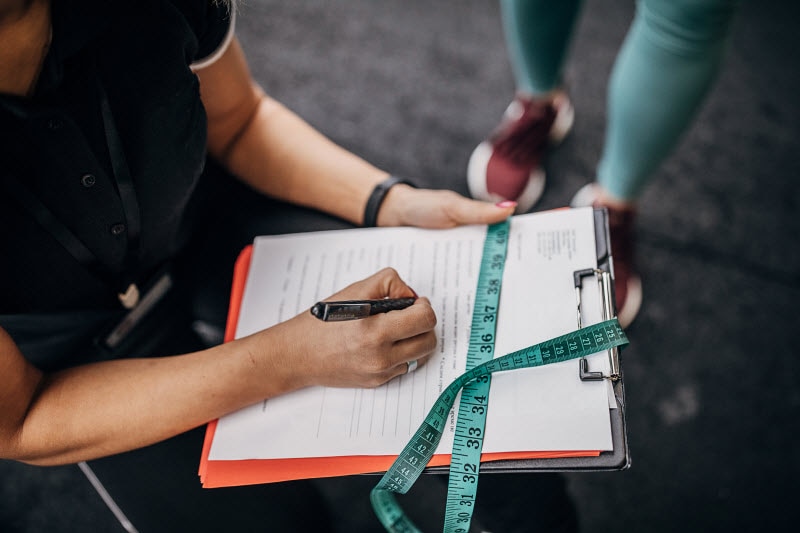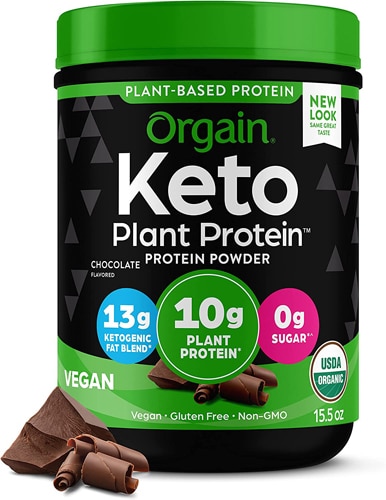[vc_row][vc_column][vc_column_text]Knowing your
body mass index can help you stay on track when you are trying to lose weight or tone up. But there is an even better measure of how close you are to achieving your goals.
Your body fat percentage is the proportion of fat your body has in comparison to lean tissue, such as:
- Body water
- Bones
- Muscle
- Organs
Tracking both your body fat percentage and body mass index can "give one more insight into their weight outside of what the scale reads," says
Karina Wait, a personal trainer with Life Time Fitness in Edina, Minnesota.

The difference between body fat percentage and BMI
Body mass index -- BMI -- often is used as a medical screening tool to quickly estimate the amount of body fat a person has. This formula compares your height and weight to calculate your body mass.
For example, someone who is 5 foot 10 and weighs 165 pounds would have a BMI of 23.67, which is considered to be “normal weight.” You can use online calculators to check your BMI.
On the other hand, body fat percentage “dives deeper and distinguishes a person's body fat from their muscle mass in relation to their overall weight,” Wait says.
A healthy body fat percentage varies depending on your age and sex. A woman between the ages of 30 and 39 might be deemed to have a "good" body fat percentage if it is between 17.5% and 20.8%, for example.
For a man the same age, that range would be 14.6% and 18.2%.
While both tools can be effective measures of your weight and health, BMI measurements alone sometimes can be misleading.
“Having a higher BMI doesn't always mean that you have a lot of body fat,” Wait says.
For example, it is possible that someone with a lot of muscle mass -- such as a person who lifts weights -- will have a BMI that falsely suggests they are overweight (BMI between 25 and 29) or obese (BMI between 30 and 39.99).
Why you should know your body fat percentage
Knowing your body fat percentage can help you maintain better health, and also can give you insight into your overall level of fitness, Wait says.
“Everyone should be at least somewhat concerned with their body fat percentage,” she says.
Wait notes that having a higher body fat percentage puts you at higher risk for numerous health conditions, including:
- High blood pressure
- Diabetes
- Heart disease
- Stroke
- Some types of cancers
While knowing your body fat percentage is an important way to track your general health and well-being, tracking this measure is even more important for athletes, bodybuilders and powerlifters, and those who simply want to take their fitness further, Wait says.
How to find your body fat percentage
You do not use a calculation alone to find your body fat percentage, but instead rely on numerous tools and machines, Wait says.
For instance, you can use a skinfold caliper pinch test. With this tool, a trained professional pinches the folds of your skin with a caliper at different places on your body. The data then is plugged into an equation to find your body fat percentage.
You can also use the girth test to determine body fat percentage. In this test, a professional measures various body sites -- wrists, hips, forearms and waist -- and plugs the data into an equation.
Several other methods can be used to find body fat percentage.
What to do if your body fat percentage is high
Eating right and exercising regularly can help bring down your body fat percentage to a more healthful level.
“The bare minimum would be to incorporate more fruits and vegetables into your diet while eliminating processed foods,” Wait says.
She also recommends incorporating high-intensity interval training (HIIT) into your workouts. This type of exercise involves alternating between short bouts of higher-intensity effort and recovery periods, and doing so multiple times.
“For optimal results, do HIIT training a few times per week,” Wait says.
Finally, she recommends regular strength training. “Resistance training can help you lose body fat and gain muscle simultaneously,” Wait says.
Other tips include:
- Controlling stress. Wait says those who are constantly stressed see increases in their cortisol levels. “High cortisol levels increase the body's fat storage, primarily belly fat,” she says.
- Getting enough sleep. Wait recommends aiming for at least seven hours of sleep. “Lower sleep levels can cause you to feel hungrier, increase cortisol levels and body-fat storage, and decrease energy levels,” she says.
- Consider working with a trainer. If you're feeling overwhelmed and are looking for more guidance, seek help from a professional.
Expect to lose about 0.5% to 1% of your body fat each week at most, Wait says. “Being slow, steady, patient and consistent are the keys to long-lasting results,” she says.
[/vc_column_text][/vc_column][/vc_row][vc_row][vc_column][vc_text_separator title="Featured Products" border_width="2"][vc_row_inner equal_height="yes" content_placement="middle" gap="35"][vc_column_inner width="1/3"][vc_single_image image="161824" img_size="full" alignment="center" onclick="custom_link" img_link_target="_blank" css=".vc_custom_1660600292894{padding-right: 7% !important;padding-left: 7% !important;}" link="https://www.vitacost.com/garden-of-life-mykind-organics-apple-cider-vinegar-diet"][/vc_column_inner][vc_column_inner width="1/3"][vc_single_image image="161823" img_size="full" alignment="center" onclick="custom_link" img_link_target="_blank" css=".vc_custom_1660600313796{padding-right: 7% !important;padding-left: 7% !important;}" link="https://www.vitacost.com/bareorganics-metabolism-blend-superfood-water-enhancer"][/vc_column_inner][vc_column_inner width="1/3"][vc_single_image image="161825" img_size="full" alignment="center" onclick="custom_link" img_link_target="_blank" css=".vc_custom_1660600331051{padding-right: 7% !important;padding-left: 7% !important;}" link="https://www.vitacost.com/orgain-organic-keto-plant-protein-power"][/vc_column_inner][/vc_row_inner][/vc_column][/vc_row]




